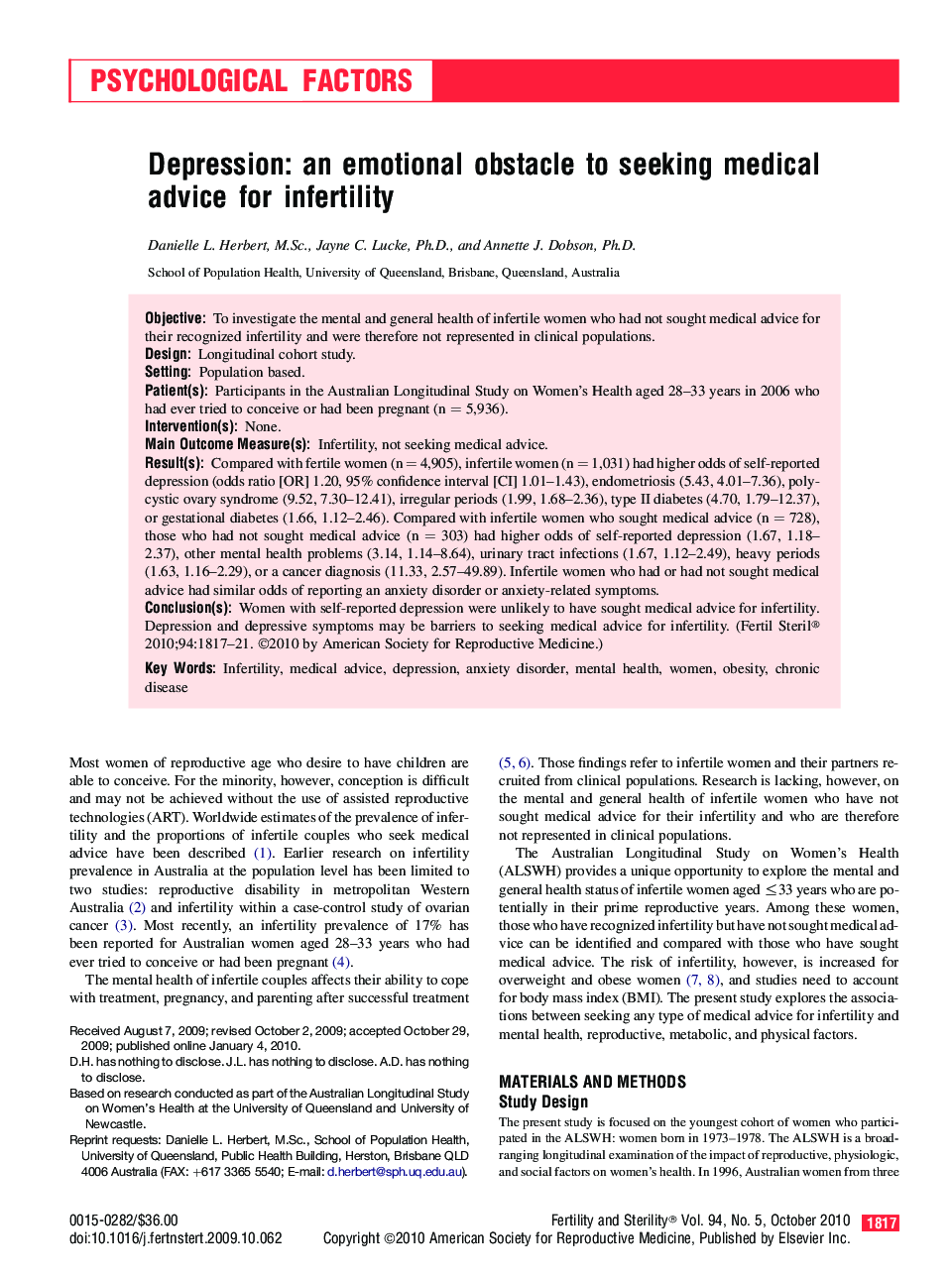| Article ID | Journal | Published Year | Pages | File Type |
|---|---|---|---|---|
| 3940503 | Fertility and Sterility | 2010 | 5 Pages |
ObjectiveTo investigate the mental and general health of infertile women who had not sought medical advice for their recognized infertility and were therefore not represented in clinical populations.DesignLongitudinal cohort study.SettingPopulation based.Patient(s)Participants in the Australian Longitudinal Study on Women's Health aged 28–33 years in 2006 who had ever tried to conceive or had been pregnant (n = 5,936).Intervention(s)None.Main Outcome Measure(s)Infertility, not seeking medical advice.Result(s)Compared with fertile women (n = 4,905), infertile women (n = 1,031) had higher odds of self-reported depression (odds ratio [OR] 1.20, 95% confidence interval [CI] 1.01–1.43), endometriosis (5.43, 4.01–7.36), polycystic ovary syndrome (9.52, 7.30–12.41), irregular periods (1.99, 1.68–2.36), type II diabetes (4.70, 1.79–12.37), or gestational diabetes (1.66, 1.12–2.46). Compared with infertile women who sought medical advice (n = 728), those who had not sought medical advice (n = 303) had higher odds of self-reported depression (1.67, 1.18–2.37), other mental health problems (3.14, 1.14–8.64), urinary tract infections (1.67, 1.12–2.49), heavy periods (1.63, 1.16–2.29), or a cancer diagnosis (11.33, 2.57–49.89). Infertile women who had or had not sought medical advice had similar odds of reporting an anxiety disorder or anxiety-related symptoms.Conclusion(s)Women with self-reported depression were unlikely to have sought medical advice for infertility. Depression and depressive symptoms may be barriers to seeking medical advice for infertility.
